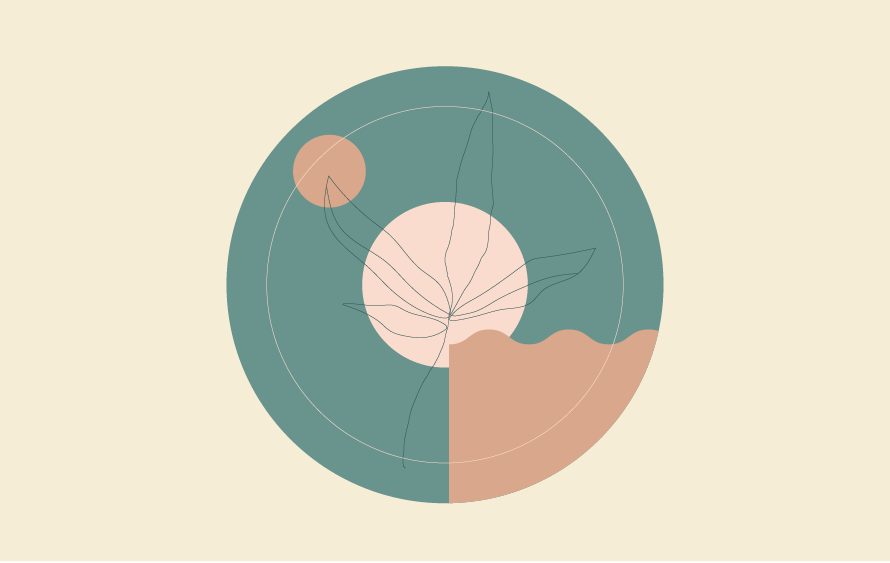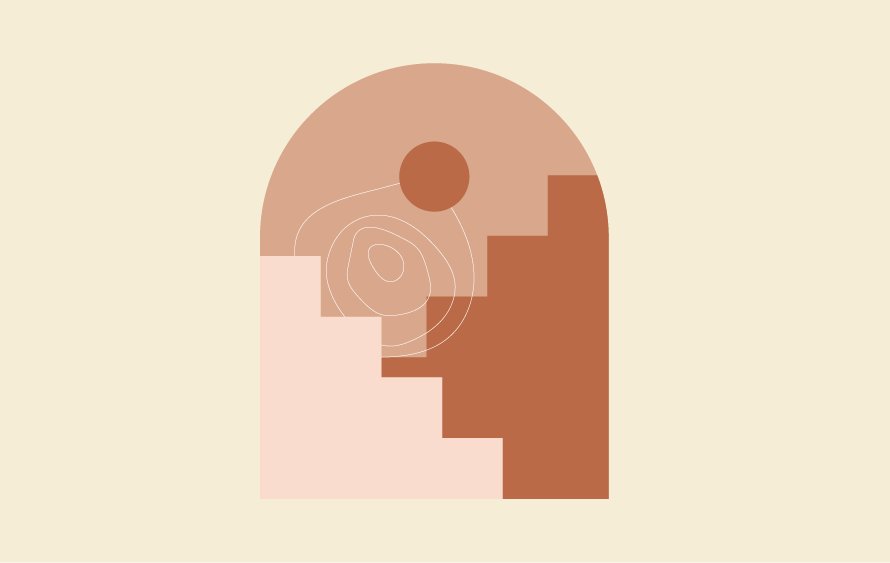It’s Saturday evening, and while others seem invigorated by the bustling crowd, bright lights, and cacophony of voices, you feel more and more drained. In a world that’s always buzzing, moving, and demanding attention, introverts sometimes feel like they’re swimming against the current. You aren’t alone; many introverts often feel overwhelmed in situations that seem to invigorate others.

Social Situations and Finding Balance:
Humans, by nature, are social beings. Even the most introverted among us can crave human connection and interaction. However, the type, duration, and intensity of these interactions can play a huge role in how they affect us. For many introverts, large gatherings or parties might feel overwhelming, not because they dislike people, but because of the myriad of stimuli they’re exposed to. Conversations happening all around, loud music, perhaps even bright lights — all these factors can combine to create an atmosphere of overstimulation. It’s essential to recognize that the issue isn’t with social interaction per se, but with the conditions surrounding them. Introverts might find more profound connections and joy in smaller, more intimate gatherings where conversations can go deep, and genuine connections are forged. By opting for such settings, they’re not withdrawing from social scenarios but merely choosing ones that align better with their disposition. Additionally, it’s crucial for introverts to communicate their preferences and needs with close friends and family. Often, loved ones can misunderstand an introvert’s need for downtime as disinterest or aloofness. Open communication can foster understanding and help build more meaningful connections.
Feeling the Rush and Buzz of Today’s World
We live in an era of incessant chatter and unceasing motion. Everywhere we turn, there’s a screen flashing, a notification pinging, or a crowd gathering. For many, especially those with introverted tendencies, this constant stimulation can be both overwhelming and exhausting. It feels like standing in the middle of a bustling city square, with sounds, sights, and sensations coming from every direction.
The Science Behind the Feeling: At the heart of it all, introverts are simply wired differently. Their brain chemistry and function make them more sensitive to external stimuli. This means that situations or environments where there’s a lot happening can quickly become overwhelming. Places teeming with people, loud environments, or prolonged periods of social interaction can feel draining. This isn’t a flaw or something to be “fixed”; it’s just how some people naturally navigate the world.
Simply put, introverts have a different brain makeup than extroverts. They use a specific chemical, called acetylcholine, which is triggered during deep thinking or when they’re focused inwardly. This chemical helps them process information internally.
Introverts also have more gray matter in a part of the brain linked to deep thought and decision-making. This means they’re naturally inclined to think more profoundly about things.
Another interesting bit? While extroverts get a boost from social interactions, introverts can find these situations tiring because their brains process these events differently. Think of it like having many apps open on your phone — after a while, it might slow down or need a break.
This isn’t a flaw. It’s just a unique way some people’s brains work, making them more thoughtful and introspective.

Tools to Combat Overstimulation
- Set Personal Boundaries: Recognizing your limits is the first step. If you know that a whole day at a bustling event will leave you feeling drained, it’s okay to limit your time there.
- Short, Intentional Breaks: During social events, there’s no harm in excusing yourself for a few moments. Find a quiet corner, take a walk outside, or practice deep breathing exercises to recharge.
- Craft Your Sanctuary: Your home should be a place to truly relax. Consider creating a designated space, devoid of overstimulation, where you can unwind and be yourself.
- Mindfulness Practices: Whether it’s meditation, yoga, or simple breathing exercises, such practices can anchor you, helping combat feelings of overwhelm.
Social Situations and Finding Balance: It’s essential to remember that while self-care is vital, complete isolation isn’t the answer either. Humans are inherently social creatures. The trick lies in finding a balance that suits you. Maybe it’s smaller gatherings instead of big parties or choosing quieter venues for meetups.
Recharge, Don’t Retreat
Overstimulation doesn’t mean that introverts should permanently retreat from scenarios that have the potential to overwhelm them. Instead, they should approach these situations with a toolkit of strategies to recharge when needed. Consider it similar to having a battery: introverts might deplete their energy faster in certain scenarios, but that doesn’t mean they can’t recharge and jump back into the fray. One strategy could be interspersing periods of high social activity with quieter moments. For instance, after a particularly active week, they might reserve their weekend for low-key activities or alone time. Journaling can be another powerful tool. By putting thoughts to paper, introverts can process and dissect their feelings, turning overwhelming emotions into manageable insights. Engaging in creative pursuits, whether it’s art, music, writing, or any other medium, can also be a therapeutic way to process and manage feelings of overstimulation. It’s a balancing act: understanding when to step back, how to recharge, and when to re-engage.
Understanding Overstimulation
The world has its volume turned up to eleven, and not everyone has the same tolerance for this auditory and visual onslaught. Some individuals, particularly introverts, have a heightened sensitivity to external stimuli. It’s not about being antisocial or shy; it’s about the neurological wiring. This sensitivity can make experiences like a loud party or a packed stadium feel intensely overwhelming, leading to feelings of exhaustion and a desire to retreat.
The Need for Quiet and Calm
Imagine your mind as a glass of water. Every stimulus — a honk, a shout, a glaring light — is a drop. For those sensitive to overstimulation, the glass fills up remarkably quickly. When it overflows, it results in feelings of anxiety, stress, and fatigue. This is why, after a day of shopping in busy malls or attending back-to-back meetings, one might feel utterly drained. There’s a deep-seated need for stillness, a space where the water can settle, and the mind can find its equilibrium.

Strategies to Manage and Reduce Overstimulation
Thankfully, even in this high-decibel world, there are ways to find pockets of peace. First and foremost, know your limits. If you’re heading into a situation you expect to be taxing, like a concert or a conference, plan some downtime afterward. It’s essential to balance out those high-stimulation events with quieter moments. Furthermore, consider practices like meditation or mindfulness. These techniques, rooted in ancient traditions, are all about centering oneself and reducing the noise from the outside world.
Retreating to Your Sanctuary
Every individual should have a space where they can retreat and recharge. It could be a specific room in your house, a favorite park, or even a quiet café. This personal sanctuary is where you can disconnect, perhaps delve into a book, or just sit in tranquil contemplation. The surroundings in this space should evoke calm and serenity. Soft lighting, muted colors, and perhaps some gentle instrumental music can transform any area into a haven away from the world’s hustle and bustle.
Setting Boundaries in a Boundary-less World
We often underestimate the power of saying ‘no‘. But sometimes, for the sake of our mental well-being, it’s essential. If a particular gathering or event isn’t mandatory and you know it will leave you feeling depleted, it’s okay to politely decline. Alternatively, if you do attend, set a time limit for yourself. Popping by a party for an hour instead of staying the whole evening can make a world of difference to your energy levels.

The Digital Detox
In today’s age, much of the overstimulation comes from our screens. The incessant flow of information from social media, news sites, and apps can be a major source of stress. It’s beneficial, every once in a while, to unplug. Designate certain hours of the day or specific days of the week where you’re free from digital devices. You’ll be surprised at the clarity and calm that can emerge from these periods of disconnection.
Remember, in a world that prides itself on non-stop action and endless chatter, it’s not just okay but essential to prioritize your well-being. Embrace the moments of quiet. Cherish the sanctuaries you create. And know that in doing so, you’re not running away from the world, but equipping yourself to engage with it more fully and meaningfully.
For those seeking more insights and strategies on managing overstimulation and other related challenges, our free ebook is an invaluable resource. Packed with actionable tips, personal stories, and deeper dives into topics, it’s designed to be your companion in this journey of understanding and self-growth.
Unlock a World of Self-Discovery with Our eBook
Embark on a transformative journey with our comprehensive eBook. It’s more than just pages filled with words—it’s a carefully curated guide designed to illuminate the path to your better self. With deeper insights, actionable tips, and empowering exercises, this eBook offers a holistic approach to personal growth. Whether you’re seeking solutions to specific challenges or simply aiming to elevate your everyday life, this resource is your trusted companion. Dive in, and let the journey of self-improvement begin. And the best part? It’s available for free, just a click away. Don’t miss out on this treasure trove of wisdom. Download now and start your journey to a more fulfilled, confident, and enlightened version of yourself.



